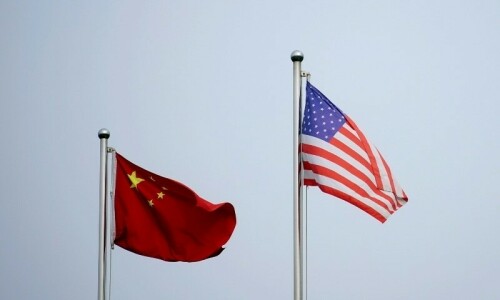LAHORE: The Punjab local government system and law will undergo changes yet again as the chief minister has formed a committee on the Local Government Legislation and System.
The 30-member committee, with MPA Sardar Awais Leghari as its convener, comprises five MPAs, seven mayors/chairmen of various municipal corporations/district and union councils, secretaries of local government, law, S&GAD and Public Health Engineering departments, two former law and local government secretaries, legal and economic experts as well as academia and civilsociety.
The committee will submit its report on the draft bill and system for local bodies by June 5.
As per terms of reference, the committee will draft the law in accordance with the requirements of the Article 140-A of the Constitutions and recent decisions of the Supreme Court.
30-member committee formed
It will engage political and administrative stakeholders and seek input from academia, civil society organizations and representatives of vulnerable groups for drafting the law.
The committee will propose statutory mechanisms in relation to institutional framework for removing hurdles faced by the LGs, improve coordination between LGs, district administration and devolved departments, mechanism for transitional period, reforming own source revenue generation, streamlining municipal financial framework through public-private partnership, municipal bonds, creation of business districts at local level, etc.
It will also suggest cementing the Punjab Local Government Commission for arbitration of disputes between local governments and departments as well as coordination with cantonment boards.
It will be the ninth attempt to establish a local government system in Punjab as researchers claim that village-based local body mechanism had been first introduced in the region by the Aryans between the second and first millennium B.C.
It remained functional without any major changes until the Colonial era, when Lord Cornwallis introduced an act in 1870 in deviation from the previous system and created a new feudal class to help rule the subcontinent with their limited representation in local councils mainly controlled by bureaucracy and the population was for the first time divided on rural and urban basis.
In the post-Partition era, a decentralized local body system was introduced in 1959 by Gen Ayub Khan. The Municipal Administration Ordinance 1960 created four-tier union councils. The system was wrapped up with the ouster of the military dictator until Gen Ziaul Haq re-introduced a new local body system in 1979.
Both Gen Ayub and Gen Zia gave more importance to their local systems but without constitutional protection. Both these systems maintained rural-urban divide and were non-party based that had a lasting impact on politics as casts and clans instead of political parties got promoted.
Then Gen Pervez Musharraf gave the Punjab Local Government Ordinance 2001 whose major distinction was the elimination of the rural-urban divide, devolving various provincial departments down to districts, introducing provincial finance commission for the distribution of resources among districts and 33pc representation for women.
After constitutional cover to the PLGO 2001 was over in 2009, the law was overhauled by the PML-N government in 2008 and then in 2013 with major amendments in the system and clipping wings of the local governments.
When the PTI came into power it dissolved the existing local bodies by enacting the Punjab Local Government Act 2019 which re-introduced the rural-urban divide. However, in a departure from the past, the local body head was to be elected directly and councilors to be elected on closed-list proportional basis with the list to be provided by the contesting political parties. It introduced panchayat for rural and neighbourhood councils for urban centres though these lacked powers with the supervisory role given to the provincial government.
The new system under the 2019 law was to take place by April 2020, but the government delayed holding the polls for one excuse or the other, fearing its defeat at the hands of the opposition PML-N in the local polls.
On the pressure of the Supreme Court, the government promulgated an ordinance in December 27 and re-promulgated it by March end on the expiry of its 90-day life to hold the local polls in two phases, with polling for the first phase to be held on May 29. However, the change in the government in Punjab jeopardized the election process and the polling could not be held.
Published in Dawn, May 31st, 2022













































Dear visitor, the comments section is undergoing an overhaul and will return soon.